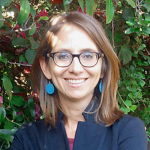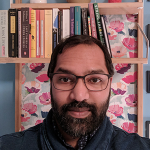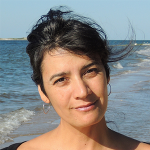News & Events
Summer 2023
We’ve reached the end of our grant cycle, and RESP will be taking a hiatus while we figure out next steps. Congrats to our two amazing cohorts of fellows. Be sure to check out their ever-growing body of work on the intersection of religion and environment!
Announcing the 2nd Religion & Environment Fellowship Class!
September 30, 2022
The Religion and Environment Story Project is pleased to announce its second cohort of fellows for 2022-2023. Selected from more than fifty competitive applications, the ten fellows form a cohort that will meet for all-expenses-paid workshops on Cape Cod, Massachusetts in October and again in Annapolis, Maryland, in the spring.
2022-23 RESP Fellows are:
Kate Gammon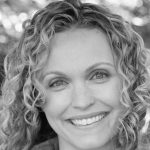 is a freelance science journalist with bylines in The Atlantic, The New York Times, Esquire and The New York Times. She writes narrative stories about science, environment, and culture. Kate holds a degree in anthropology and environmental studies from Princeton University and a master’s degree in science writing from the Massachusetts Institute of Technology. Twitter: @kategammon
is a freelance science journalist with bylines in The Atlantic, The New York Times, Esquire and The New York Times. She writes narrative stories about science, environment, and culture. Kate holds a degree in anthropology and environmental studies from Princeton University and a master’s degree in science writing from the Massachusetts Institute of Technology. Twitter: @kategammon
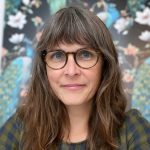 Nicole Greenfield iNicole Greenfield is a writer at NRDC, where she tells people-centered and climate-focused stories about pipeline fights, safe drinking water, agriculture, and more. Prior to joining NRDC, she freelanced as a religion journalist. Nicole has a master’s degree in religious studies, with a journalism concentration, from New York University. Twitter: @nmgreenfield
Nicole Greenfield iNicole Greenfield is a writer at NRDC, where she tells people-centered and climate-focused stories about pipeline fights, safe drinking water, agriculture, and more. Prior to joining NRDC, she freelanced as a religion journalist. Nicole has a master’s degree in religious studies, with a journalism concentration, from New York University. Twitter: @nmgreenfield
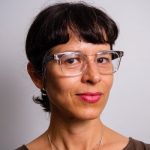 Ruxandra Guidi is a freelance audio and magazine journalist and an assistant professor of practice and assistant director of the Bilingual Journalism Program at the University of Arizona’s School of Journalism, where she teaches audio storytelling, feature writing and freelancing. She grew up in Venezuela and has been telling stories for two decades, both in the U.S. and throughout Latin America. Twitter: @ruxguidi
Ruxandra Guidi is a freelance audio and magazine journalist and an assistant professor of practice and assistant director of the Bilingual Journalism Program at the University of Arizona’s School of Journalism, where she teaches audio storytelling, feature writing and freelancing. She grew up in Venezuela and has been telling stories for two decades, both in the U.S. and throughout Latin America. Twitter: @ruxguidi
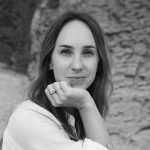 Annelise Jolley is an independent journalist and essayist who writes about place, food, ecology, and faith. She has written for National Geographic, The Atavist, The Millions, The Sunday Long Read, EcoTheo Review, and Civil Eats. She has won a James Beard Award, a Dart Award, and an Overseas Press Club Award. Twitter: @annelisejolley
Annelise Jolley is an independent journalist and essayist who writes about place, food, ecology, and faith. She has written for National Geographic, The Atavist, The Millions, The Sunday Long Read, EcoTheo Review, and Civil Eats. She has won a James Beard Award, a Dart Award, and an Overseas Press Club Award. Twitter: @annelisejolley
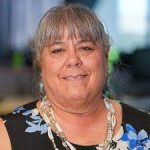
Debra Utacia Krol is an award-winning journalist with an emphasis on Indigenous, environmental and science issues who’s fond of averring that “My beat is Indians.” She is an enrolled member of the Xolon (also known as Jolon) Salinan Tribe from the Central California coastal ranges. In addition to more than a dozen other awards, Krol was named Best Beat Environmental Reporter by the Native American Journalists’ Association and won the Feddie award from the National Press Foundation. Twitter: @debkrol
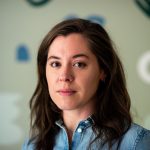 Martha Park is a writer and illustrator from Memphis, Tennessee. She received an MFA from the Jackson Center for Creative Writing at Hollins University, and was the Spring 2016 Philip Roth Writer-in-Residence at Bucknell University’s Stadler Center for Poetry. Her work has appeared in Oxford American, Guernica, The Bitter Southerner, Granta, Ecotone Magazine, The Guardian, ProPublica, and elsewhere.
Martha Park is a writer and illustrator from Memphis, Tennessee. She received an MFA from the Jackson Center for Creative Writing at Hollins University, and was the Spring 2016 Philip Roth Writer-in-Residence at Bucknell University’s Stadler Center for Poetry. Her work has appeared in Oxford American, Guernica, The Bitter Southerner, Granta, Ecotone Magazine, The Guardian, ProPublica, and elsewhere.
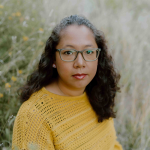
Rebecca Randall is a writer and editor based in the Pacific Northwest. She focuses on the environment, religion, psychology, and society. She is the former science editor at Christianity Today, where she helped writers develop capacity to integrate theology and science together in their work. She has interviewed a climate scientist on God’s sovereignty, edited an article on how Ethiopian Orthodox theology protects trees and, most recently, written about whether worship music can shift Christians toward climate action. Twitter: @beccawrites
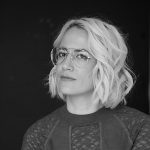
Nina St. Pierre is a queer culture writer, essayist, and soon-to-be author. Her memoir, Love is a Burning Thing (Dutton, 2024) explores the intersections between mysticism, mental health, and poverty. She is a regular contributor to Gossamer, and has written for Victory, Catapult, Bitch, Outside, Nylon, GQ, and Harper’s Bazaar. As a collaborative writer for Idea Architects, she helps leading explorers, CEOs, and spiritual leaders bring their stories to life in book form. Nina holds an MFA from Rutgers-Camden and was a 2022 Banff Centre Literary Journalism Resident. Twitter: @ninastpierre
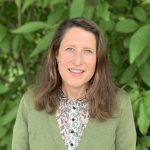
Julia Shipley is a recent graduate of Columbia Journalism School, where she received the prize for the best MA thesis; a shorter version subsequently appeared in Grist and Rolling Stone. Previously, she was contributing writer to Seven Days: Vermont’s Independent Weekly, Yankee Magazine, and Harvard’s Nieman Storyboard. As a 2021-22 fellow with Columbia Journalism Investigations, Shipley contributed to climate-health audio and print projects in collaboration with NPR and the Texas Newsroom. With support from TYPE Investigations and the Fund for Investigative Journalism, Shipley also contributed to a climate-housing project published by The Center for Public Integrity, Yahoo News, Mother Jones, and Univision. Twitter: @juliashipley3
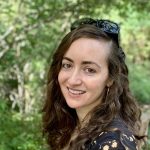 Julia Simon is a radio reporter and investigative business journalist on the climate change and energy beats. She reports for NPR’s climate change, science, and foreign desks, and her features appear on Morning Edition and All Things Considered. She’s a guest host on Planet Money and other NPR podcasts. Previously, she was a staff energy reporter at Reuters. Her reporting for Planet Money was a finalist for the Gerald Loeb Award. Julia has worked as a foreign correspondent in Nigeria, Egypt, and Indonesia and she speaks and reports in Arabic, Spanish, French and Indonesian. Twitter: @juliaradio
Julia Simon is a radio reporter and investigative business journalist on the climate change and energy beats. She reports for NPR’s climate change, science, and foreign desks, and her features appear on Morning Edition and All Things Considered. She’s a guest host on Planet Money and other NPR podcasts. Previously, she was a staff energy reporter at Reuters. Her reporting for Planet Money was a finalist for the Gerald Loeb Award. Julia has worked as a foreign correspondent in Nigeria, Egypt, and Indonesia and she speaks and reports in Arabic, Spanish, French and Indonesian. Twitter: @juliaradio
“It’s exciting to be continuing our work with another outstanding cohort of writers who share our commitment to telling new stories about the religious and spiritual dimensions of our accelerating climate crisis,” said Stephen Prothero, RESP co-director and the C. Allyn and Elizabeth V. Russell Professor of Religion in America in the Department of Religion at Boston University.
The RESP programming will help these journalists, who work in a variety of media, to tell stories that bridge the divide between the religion and science beats, and promote new thinking and new narratives that will inform and educate the public, especially on the climate crisis. The fellows selected include longform essayists, podcasters, radio journalists, and a an illustrator. By the end of the fellowship, each fellow will have produced at least one story that covers the intersections of religion and the environment.
Fellows also receive a year’s membership to the Society of Environmental Journalists (SEJ) and the Religion News Association (RNA), plus registration fees for SEJ and RNA conferences. Upon completion of the program, fellows will receive a stipend of $1,000.
“Every day the reality of the climate crisis is coming closer to people, and it’s more important than ever that stories embrace the import of what humanity is facing with the recognition of how belief systems impact how we respond,” said Meera Subramanian, RESP co-director, award-winning journalist and past president of SEJ. “We’re excited to build on the momentum of last year’s RESP gathering with the welcoming of this great new cohort.”
RESP is based at Boston University and funded by a grant from the Arthur Vining Davis Foundations.
RESP Fellow Diana Kruzman Receives Environmental Journalism Story Grant
September 24, 2021
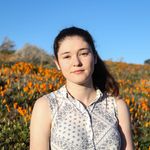 Diana will report on “Up In Smoke: The Public Health Impacts of Wood-Burning Stoves”
Diana will report on “Up In Smoke: The Public Health Impacts of Wood-Burning Stoves”
Across the United States, more than 11 million people rely on burning wood for heat, releasing soot that has been proven to be toxic to human health. This story will explore the effects of wood smoke on public health in low-income communities and communities of color, as well as investigate the impact of wood stove changeout programs on reducing pollution. Congratulations, Diana!
Congratulations to SEJ’s Spring 2021 Religion-Environment Story Grant Recipients!
September 20, 2021
The Religion & Environment Story Project, in concert with the Arthur Vining Davis Foundation, contributed $25,000 to the Society for Environmental Journalists to fund story grants for journalists covering the intersections of religion, environment, and climate.
- Richard Brown for “Land, Water, Blood: The Battle for Kekchi Territory in Guatemala”
- Barbara Fraser for “Enchanted Lakes and Laudato Si’: Indigenous and Catholic Views of Our Relationship With the Natural World”
- Melissa Godin and Alex Knott for “Clean Energy or Environmental Injustice: The Indigenous Struggle to Protect a Sacred River From Hydroelectric Exploitation in the Ecuadorian Amazon”
- Tasmiha Khan for “How Muslims Are Motivated by Islam To Approach Climate Care and Climate Action”
- Timothy Schuler for “Place of Refuge”
- Neha Thirani Bagri and Sara Hylton for “Meghalaya’s Sacred Groves: How Community and Tradition Can Protect Our Natural Resources”
We can’t wait to read these stories! Click here for more information.
Announcing the Religion & Environment Fellowship Program Inaugural Class!
Britny Cor dera is a published poet, nonfiction writer, and emerging journalist who investigates the intersections between environment, climate change, religion, and ecowomanism. She is interested in investigating how climate change continues to exacerbate the settler-colonial agenda, how it is affecting Black and Indigenous communities, and how we can overcome the climate crisis by giving the sacred back to the land. Twitter: @bcdpoet
dera is a published poet, nonfiction writer, and emerging journalist who investigates the intersections between environment, climate change, religion, and ecowomanism. She is interested in investigating how climate change continues to exacerbate the settler-colonial agenda, how it is affecting Black and Indigenous communities, and how we can overcome the climate crisis by giving the sacred back to the land. Twitter: @bcdpoet
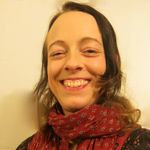 Christina Nichol is a teacher and award-winning writer who has taught around the world, including in the republic of Georgia, where her first novel, Waiting for the Electricity, is set. She currently teaches environmental and cultural studies at Sonoma State University. Website: ChristinaNichol.com
Christina Nichol is a teacher and award-winning writer who has taught around the world, including in the republic of Georgia, where her first novel, Waiting for the Electricity, is set. She currently teaches environmental and cultural studies at Sonoma State University. Website: ChristinaNichol.com
 Diana Kruzman is a freelance reporter whose work focuses on the intersection of the environment, religion and urbanism. She has written for Undark, Earther, The New York Times, The Christian Science Monitor, Vice and the GroundTruth Project and has reported from Albania, India, Kyrgyzstan and the US. Twitter: @DKruzman
Diana Kruzman is a freelance reporter whose work focuses on the intersection of the environment, religion and urbanism. She has written for Undark, Earther, The New York Times, The Christian Science Monitor, Vice and the GroundTruth Project and has reported from Albania, India, Kyrgyzstan and the US. Twitter: @DKruzman
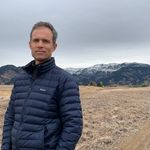 Fred Bahnson is the author of Soil & Sacrament (Simon & Schuster). His writing has appeared in Harper’s, Emergence, Oxford American, Orion, The Sun, Notre Dame Magazine, Best American Spiritual Writing, and Best American Travel Writing. He lives in Montana. Twitter: @fredbahnson
Fred Bahnson is the author of Soil & Sacrament (Simon & Schuster). His writing has appeared in Harper’s, Emergence, Oxford American, Orion, The Sun, Notre Dame Magazine, Best American Spiritual Writing, and Best American Travel Writing. He lives in Montana. Twitter: @fredbahnson
 Heidi Shin is a public radio + podcast producer based in Boston. Her work has appeared in The New York Times, The Washington Post, National Geographic, PRX Snap Judgment, and PRI’s The World, amongst others. She also co-created and produced WGBH/The Ground Truth Project’s “The New American Songbook” whose awards include an ONA, a Webby, and an Edward R. Murrow Award. Twitter: @byheidishin
Heidi Shin is a public radio + podcast producer based in Boston. Her work has appeared in The New York Times, The Washington Post, National Geographic, PRX Snap Judgment, and PRI’s The World, amongst others. She also co-created and produced WGBH/The Ground Truth Project’s “The New American Songbook” whose awards include an ONA, a Webby, and an Edward R. Murrow Award. Twitter: @byheidishin
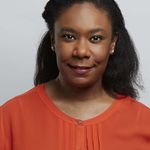 Kendra Pierre-Louis is senior a climate reporter with the Gimlet/Spotify Podcast How to Save a Planet where her work focuses on climate change solutions. Prior to that she was a climate reporter for The New York Times and a climate reporter for Popular Science. Twitter: @KendraWrites
Kendra Pierre-Louis is senior a climate reporter with the Gimlet/Spotify Podcast How to Save a Planet where her work focuses on climate change solutions. Prior to that she was a climate reporter for The New York Times and a climate reporter for Popular Science. Twitter: @KendraWrites
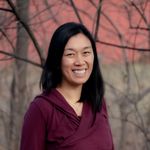
Liuan Huska is a freelance journalist and writer at the intersection of religion, environment, health, and culture. She lives in the Chicago area, on ancestral Potawatomi land, with her husband and three children. Twitter: @LiuanHuska
 Molly Olmstead is a reporter at Slate who primarily covers religion and politics. She has worked at Slate since 2016, where she reported on news and politics, often with a focus on the South. She currently lives in Washington, D.C. Twitter: @MollyOlmstead
Molly Olmstead is a reporter at Slate who primarily covers religion and politics. She has worked at Slate since 2016, where she reported on news and politics, often with a focus on the South. She currently lives in Washington, D.C. Twitter: @MollyOlmstead
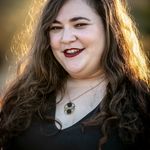
Sarah Ventre is an audio journalist based in Phoenix and host of Unfinished: Short Creek, a podcast about a fundamentalist Mormon community. As part of her reporting, Sarah embedded in Short Creek and lived in former FLDS prophet Rulon Jeffs’ house. The show was named #3 best podcast of 2020 by The New Yorker. Twitter: @sarazonah
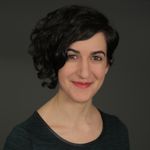 Sigal Samuel is a Senior Reporter at Vox and co-host of the Future Perfect podcast. She writes about artificial intelligence, neuroscience, climate change, and the intersection of technology with ethics and religion. Previously, she was the Religion Editor at The Atlantic. Twitter: @SigalSamuel
Sigal Samuel is a Senior Reporter at Vox and co-host of the Future Perfect podcast. She writes about artificial intelligence, neuroscience, climate change, and the intersection of technology with ethics and religion. Previously, she was the Religion Editor at The Atlantic. Twitter: @SigalSamuel
Selected from more than fifty competitive applications, the ten fellows form a cohort that will meet for all-expenses-paid workshops in Annapolis, Maryland, in early October and again in Houston, Texas, in the spring.
“We’re excited about having such an amazing group of emerging and established journalists. We’re hopeful that they will help change the conversation about the nexus of religion, spirituality and the environment as we all face the ongoing climate crisis,” said Stephen Prothero, RESP co-director and the C. Allyn and Elizabeth V. Russell Professor of Religion in America in the Department of Religion at Boston University.
RESP training will help these journalists, who work in a variety of media, to bridge the divide between the religion and science beats, and promote new thinking and new narratives that will inform and educate the public, especially on the climate crisis.
Fellows also receive a year’s membership to the Society of Environmental Journalists (SEJ) and the Religion News Association (RNA), plus registration fees for SEJ and RNA conferences held adjacent to RESP workshops. Upon completion of the program, fellows will receive a stipend of $2,000.
“The latest IPCC report reveals that the science is definitive: the climate crisis is already affecting every corner of the globe,” said Meera Subramanian, RESP co-director, award-winning journalist and past president of SEJ. “But it will depend upon human values, ethical priorities and faith-based decision-making to determine how we will respond, and how quickly. These are the missing stories that RESP hopes to foster.”
RESP is based at Boston University and funded by a grant from the Arthur Vining Davis Foundations.


